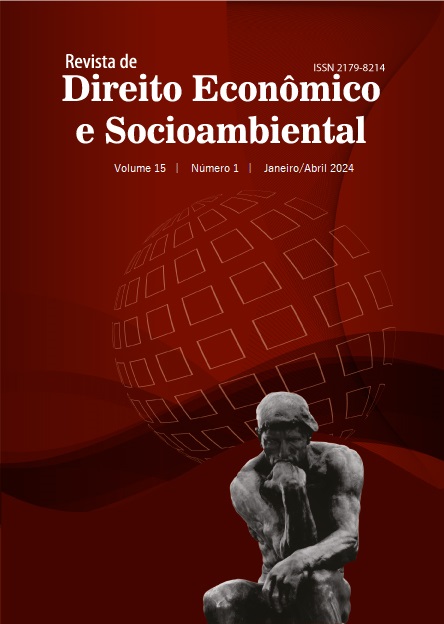As novas tecnologias como premissa contemporânea da sustentabilidade e a sociedade de risco
DOI:
https://doi.org/10.7213/revdireconsoc.v15i1.29497Palavras-chave:
sustentabilidade; novas tecnologias; meio ambiente; sociedade de risco; indústria 4.0.Resumo
Este artigo objetiva entender os riscos e possibilidades na busca por sustentabilidade a partir do desenvolvimento de novas tecnologias Objetivos específicos: a) compreender as premissas e dimensões da sustentabilidade; b) estudar e comparar conceitos como “quarta revolução industrial”, “sociedade de risco” e “indústria 4.0”; c) avaliar como as tecnologias disruptivas contemporâneas acarretam riscos inerentes de modo paralelo a contribuições para com a sustentabilidade; d) debater acerca do papel do Direito na sistemática de possíveis alternativas regulatórias para a tecnologia. Metodologia: método de procedimento hipotético-dedutivo, com abordagem qualitativa e técnica de revisão bibliográfica.
Downloads
Downloads
Publicado
Como Citar
Edição
Seção
Licença
Copyright (c) 2024 Mateus de Oliveira Fornasier, Fernanda Viero da Silva, Norberto Milton Paiva Knebel

Este trabalho está licenciado sob uma licença Creative Commons Attribution 4.0 International License.
Autores que publicam nesta revista concordam com os seguintes termos:
- Autores mantém os direitos autorais e concedem à revista o direito de primeira publicação, com o trabalho simultaneamente licenciado sob a Creative Commons - Atribuição 4.0 Internacional que permite o compartilhamento do trabalho com reconhecimento da autoria e publicação inicial nesta revista.
- Autores têm autorização para assumir contratos adicionais separadamente, para distribuição não-exclusiva da versão do trabalho publicada nesta revista (ex.: publicar em repositório institucional ou como capítulo de livro), com reconhecimento de autoria e publicação inicial nesta revista.
- Autores têm permissão e são estimulados a publicar e distribuir seu trabalho online (ex.: em repositórios institucionais ou na sua página pessoal) a qualquer ponto antes ou durante o processo editorial, já que isso pode gerar alterações produtivas, bem como aumentar o impacto e a citação do trabalho publicado (Veja O Efeito do Acesso Livre).





















